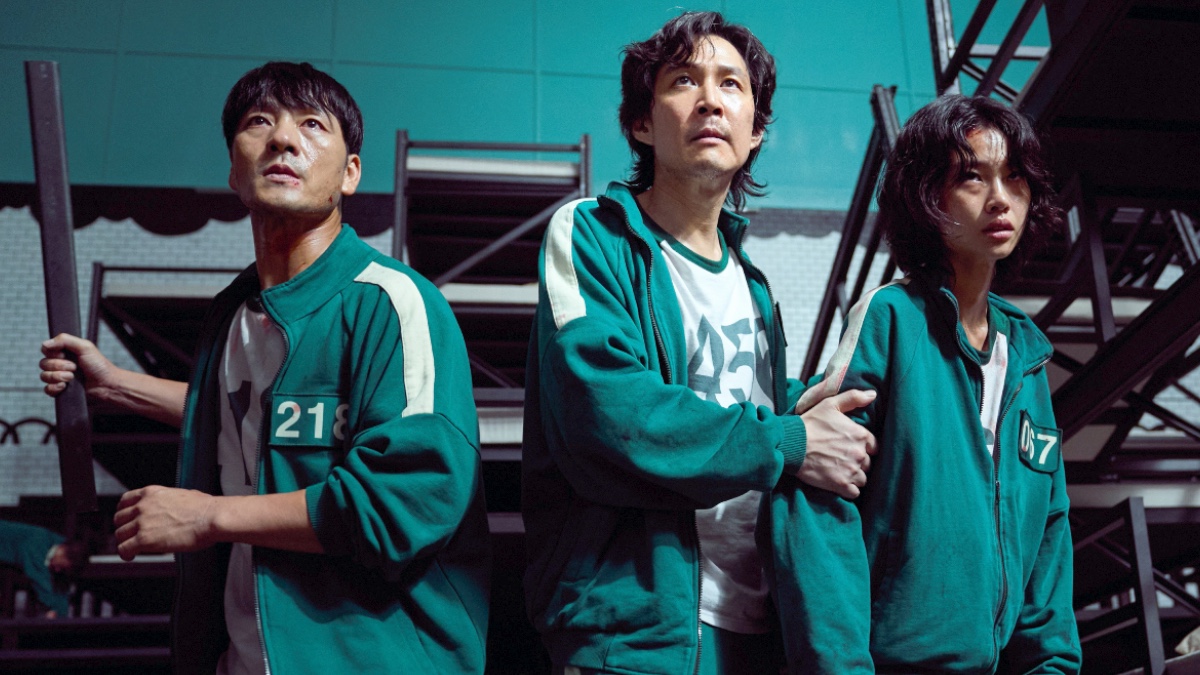Squid Game was the breakout pop culture phenomenon of 2021, dropping on Netflix after people had spent a year and a half dealing with a global pandemic and were ostensibly right in the mood for a depressing Korean dystopian drama. But given that the first season was left fairly open-ended, viewers have been eagerly anticipating the second season.
The good news is that creator Hwang Dong-hyuk, who also directed the series, is in final discussions with Netflix for season two. But unfortunately, the less great news is that he doesn’t anticipate it being out until late 2023 or 2024 and so far only has about “three pages worth of ideas that he plans to turn into a script.”
In a new Vanity Fair profile with Hwang and stars Lee Jung-jae (Seong Gi-hun), Park Hae-soo (Cho Sang-woo), and HoYeon Jung (Kang Sae-byeok), the creator and cast discussed their newfound fame outside of Korea and speculate what a second of Squid Games might look like.
“Humanity is going to be put to a test through those games once again,” Hwang said, adding that Gi-hun is “definitely coming back” and that the mysterious Front Man from the first round of games may or may not play a bigger role next season. And despite the fact that Gi-hun and Sang-woo died — or appeared to have died, anyway — Lee has ideas on how to bring them back next season.
What do the actors themselves hope to see in a second season? “I just want Gi-hun to have a more happy life,” says Hoyeon. Sae-byeok and Sang-woo appear to have died, but Lee hopes that Sae-byeok has a twin sister, and that Sang-woo has actually been whisked away by the game operatives in time to keep him alive, so he can work with Hoyeon and Park again. For his part, Park says his great hope is that Korean shows and movies will reach even more people.
But plot and characters aside, Hwang also has thematic ideas for season two, which sounds maybe only mildly depressing?
Asked if the second season of Squid Game will have the same thematic preoccupations, Hwang says, “I want to ask the question, ‘Is true solidarity between humans possible?’ ” Living in this time of global crisis, it’s clear to Hwang that the only way we can overcome the challenges facing our species is with solidarity. Toward the close of the first season, it seemed increasingly possible that, rather than fight to have a single winner, people could have worked together to win as a team.
I ask Hwang if he’d had that message in mind. He says he wanted to leave room for this interpretation, but since the characters in the game were “focused on wanting to kill each other off,” they weren’t capable of surviving as a group. He compares it to humanity’s current situation: People seem more like racehorses, just trying to outpace each other.
Well, that’s certainly a bleak analogy, but probably a pretty good indication of where Squid Games is headed in season two. And if the first season arrived post-Trump and in the middle of a global health crisis, it’s anybody’s best guess on how our currently unfolding real-life dystopia might compare and reflect by then.
